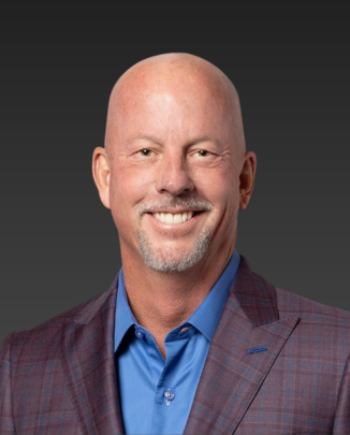
The connection between the two has been a topic of interest for millennia. There’s a Latin saying from the writings of Roman poet Juvenal that I really enjoy that says “Mens sana in corpore sano” which intends to say “you should strive for a healthy mind and a healthy body”. Could it also possibly mean that a healthy body is of no use if your mind is not healthy?
Dr. Brock Chisholm, the first Director-General of the World Health Organization, stated: “Without mental health, there can be no true physical health.” He championed the notion that physical and mental health are inextricably related to one another. I agree.
Clearly, from the time of the Romans to our present time, we recognize that mental health is just as important as physical health.
Why then, is there a huge gap between mental and physical health care? We’ve made leaps and bounds in physical care, but what about the mental health? In this article, we’ll cover some of the pioneers and companies that are making the link between mental and physical health to help improve not only patient outcomes but also clinician satisfaction.
After several amazing interviews with leading healthcare figures on our podcast dealing with mental health, here’s what I found out — There is a strengthening response to mental health, and it’s taking place through unique approaches that include clinical directory innovation, novel EHR integrations, and digital therapeutics. We’re getting better at mental healthcare thanks to these pioneers, one step at a time.
In the past, you may have observed a wide gulf between physical health and mental health. Quartet Health has made significant improvements in bridging that chasm.
In my interview with Dr. David Wennberg, CEO at Quartet Health, he said ” Quartet feels it is our mission to improve the lives of people with mental conditions through technology and services. We feel that mental health is a condition no different than heart failure or cancer are from each other. It’s our focus and my mission and passion to bring those two separate worlds together. I think Quartet Health addresses a huge problem that we have right now in terms of delivering people, getting people to mental health care.”
Quartet offers an integrated mental health platform that integrates into the EHR and connects physicians to a support network that will help them address the mental health needs of their patients. Their platform creates a collaborative space for mental health providers and primary care physicians to work on patients comorbid physical mental health conditions and be able to actually deliver that makes a positive impact. We have to treat the whole patient. The whole person.
Dr. Wennberg clearly pointed out that Quartet doesn’t deliver care. It helps people navigate to the right care in the right channel at the right time. They have helped thousands of patients get to the care they need. They have helped physicians deliver the best care by making it easy for them to team up with an accessible mental health care team at the press of a button.
Two things stuck in my mind after my podcast with David. The first one is when he said that Quartet supports physicians to overcome the pay-for-performance attitude and focus on providing true value-based care. The second one is when he said that in all the different aspects Quartet deals with, the patient is its North Star. With the suicide rate at an all-time high in the U.S. and issues with the opioid epidemic, we are in need of companies like Quartet Health to make a positive impact that will take care of patients better and even take cost out of the system.
With Dr. David Wennberg at the helm of Quartet, we can look forward to more scalable and timely solutions integrating physical and mental health.
The Internet and digital technologies have democratized information, but can they help deliver efficient solutions for mental health? Ken Cahill, CEO at SilverCloud Health proves it can.
In our conversation, Ken mentioned some interesting statistics. He said “..the CDC would estimate that one in four of the global populations will have a noticeable mental health disorder in any given year of their lives. We then add issues around chronic diseases and the numbers then increase at an even more alarming rate.” One in four.
Those statistics don’t account for comorbidities around clinical levels of depression, anxiety, etc.
To provide a scalable solution, SilverCloud Health created a digital health platform that allows healthcare professionals, organizations, and professionals to provide a wide range of highly interactive programs to patients. SilverCloud Health has successfully managed to provide digital therapeutics that help address these conditions. They offer 30+ programs to improve mental and chronic health conditions. They have done studies to show their platform lowers provider costs and improves outcomes. Today, this digital platform is being used by 210 organizations across five countries which include companies like OSF Healthcare, PWC, Optum, The World Health Organization and more.
What I appreciated most in my conversation with Ken is the impact he and his company is having when he said, ”…we’ve had a lot of challenges. But there’s always a stand-out moment. It really made me understand that while we are doing was different….it was impacting people, their families, their communities, their workplaces and how we were being contacted now by cities, by states, and even by countries who were looking to improve the mental health of their own country. Some are looking to provide something that is a safety net, a catch in terms of interventional mental health around clinical and an even more severe level of depression or distress.” The impact is local, national, and now global.
If you’ve felt the need for a therapist, how do you find the right one? Zencare.co can help you with that.
For Yuri Tomikawa, founder and CEO at Zencare.co, being able to easily access her ideal therapist is one of the best improvements in the mental health space she sought to tackle. Listen to our interview with Yuri, here.
Zencare offers the simplest way to find the best therapist for you. Yuri created Zencare because of the frustration she felt when looking for a therapist that would best suit her needs. The process was opaque and confusing.
She said, “What I found was this really overwhelming and frustrating process where the therapists listed information were inaccurate…It was impossible to tell which therapist could offer great care and will make it fit for me. All that manifested in me starting Zencare.”
What stood out from the conversation with Yuri was that we are certainly in an era of consumerism in healthcare where consumers are demanding more of the health system to meet their needs. Her efforts to find solution transformed the way people look for mental healthcare in the areas where her solution is available.
From one woman’s desire for mental wellness comes Zencare which now serves New York City, Boston Area, Rhode Island, Chicago, and Connecticut.
While we did not cover the topic of reimbursement for mental healthcare as a large factor for why we have not seen more of an uptake in routine mental health services, it is worth noting that this is a large part of the reason for the disconnect. However, with the work being done by folks like Dr. David Wennberg, Yuri Tomikaway and Ken Cahil, payers and employers are starting to see the importance of getting this care covered as part of the plan. As you can see, we’ve already made vast improvements in the mental health space, but there’s always room for more improvement. Mental health is an integral part of our whole person health. As we strive for value-based care, we must also put emphasis on mental health.
What improvements in mental health have you seen or would you like to see? Share your thoughts with me below.
According to the 2020 Centers for Disease Control and Prevention report, roughly 34.2 million Americans have diabetes,...
Read MoreAs a farmer, Rod was used to long days. He worked 18 hours a day, 7 days...
Read MoreWith investors receiving hundreds of pitch decks every year, how do you create a compelling presentation that...
Read More
Brittany Busse Co-Founder, President, and Chief Medical Officer at
ViTelHealth


Stephen Thorne Founder and CEO at
Pacific Dental Services

Keith Carlson Nurse Career Coach